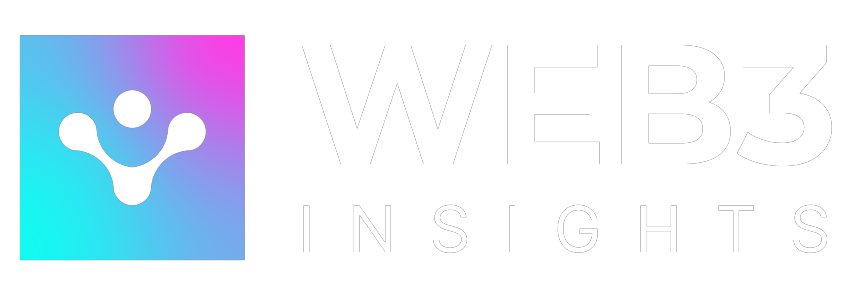
Earlier, we explored VanEck and 21Shares’ exciting bid to secure approval for a Solana spot ETF in the U.S. VanEck and 21Shares, leaders in investment and crypto ETPs, are driving potentially groundbreaking financial innovation.
Today, we explore a Solana spot ETF in Canada, examine its filing, and assess its chances of approval.
Stay tuned, this could be a pivotal moment for both Solana enthusiasts and the broader cryptocurrency landscape!
Canada: A Pioneer in Crypto Innovation?

Canada made history by launching the first spot Bitcoin and Ethereum ETFs in February and April 2021.
As we focus on Solana ETFs, their approval could pave the way for ETFs based on smaller digital assets. This milestone will boost diversity and innovation in crypto while bringing fresh opportunities to traditional finance.
The approval of a Solana ETF in Canada could inspire other countries, accelerating global cryptocurrency acceptance.
Canada Welcomes the Solana ETF!

Canadian asset manager 3iQ filed to list the first Solana ETF in North America on the TSX as QSOL. The team submitted the QSOL filing for approval to securities regulators in all Canadian provinces and territories except Quebec. If approved, QSOL will allow investors to track the price of SOL crypto in US dollars.
Moreover, QSOL offers the chance to earn staking rewards from the Solana blockchain, estimated between 6% and 8%. This is great for investors looking to earn passive income while benefiting from the stability of the Solana network.
Coinbase Custody and Tetra Trust will act as custodians. They will offer secure infrastructure for institutional staking in the Solana fund, ensuring safety and reliability for investors.
Differences in Solana Fund Filings: US vs. Canada

While VanEck’s proposal for a US spot ETF surfaced shortly after the SOL fund filing in Canada, the two initiatives diverge significantly, particularly in key aspects outlined below:
The Canadian proposal by 3iQ is likely to have a higher likelihood of approval compared to VanEck’s US proposal. This difference stems from potential shifts in regulatory precedent and leadership within the US Securities and Exchange Commission.
3iQ’s product has the structure as a closed-end fund, meaning it will issue a fixed number of shares. In contrast, VanEck’s Solana Trust will operate like traditional ETFs, letting authorized participants create and redeem shares as needed. This structure mirrors the setup of spot Bitcoin funds launched earlier this year and anticipated spot ETH funds.
Bloomberg analyst James Seyffart stated the VanEck fund would resemble familiar ETF models. In contrast, 3iQ’s Solana Fund is similar to Grayscale Trust products. Seyffart and Chris Matta of 3iQ Digital Assets noted that Canadian closed-end funds maintain premiums and discounts near net asset value.
Additionally, 3iQ’s fund shares will trade on the Toronto Stock Exchange, unlike Grayscale Solana Trust shares on OTC Markets.
These distinctions highlight the regulatory dynamics and investor considerations in cryptocurrency, providing various avenues for engagement through regulated investment vehicles.
Likelihood of Success?

Last week, Matta told Blockworks that Solana reached a “stage of maturity,” prompting 3iQ to file for the ETF. He highlighted Solana’s impressive market cap of approximately $60 billion as a key indicator of this growth.
He noted that regulators might initially prefer the closed-end structure due to the lack of a regulated futures market for Solana. Unlike Bitcoin and Ethereum, which have futures markets offered by the CME Group, Solana lacks this level of regulatory framework.
Matta explained that this restriction hinders authorised participants, usually regulated Canadian banks from hedging their exposure during the creation and redemption process.
“Frankly, I think that’s why there haven’t been filings in the US for solana ETFs,” he told Blockworks last week.
In 2020, 3iQ pioneered similar investment funds centred on Bitcoin and Ethereum. This was a year ahead of the introduction of Canada’s first spot Bitcoin and Ether products to the market.
“Historically, other closed ended vehicles have converted to ETFs when regulators could get comfortable, so that’s something that can be considered in the future,”Matta commented in a June 20 article on X.
Unlike the 3iQ fund, the VanEck offering wouldn’t involve staking its SOL holdings. This decision comes in light of the SEC’s reservations about staking, which were evident during the ether ETF proposal review. Despite this omission, it seems the VanEck Solana product faces significant challenges ahead.
Note:
Industry experts interviewed by Blockworks expect the SEC’s current regulatory precedent for approving spot products to remain unchanged soon.
With the Solana ETF (SOLETF) launch potentially imminent, investor interest in Solana is peaking. Regulatory hurdles and market acceptance are critical uncertainties.
Analysts anticipate the ETF could boost investor confidence and liquidity, potentially sparking bullish sentiment for Solana’s price.








